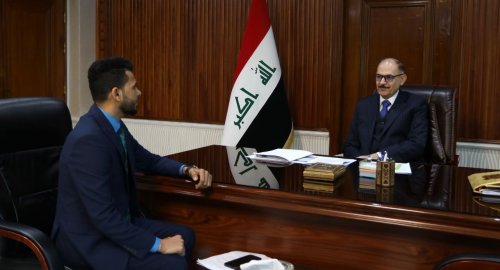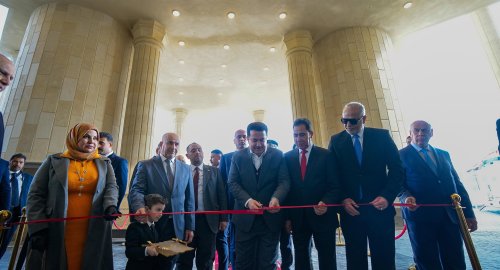
SJC: Amendments to the Personal Status Law Do Not Address Detailed Provisions Related to Family cases

- 22-09-2024, 14:16
Baghdad – INA
The Supreme Judicial Council-SJC confirmed on Sunday, that the amendments to the Personal Status Law do not address the detailed provisions related to family issues.
In a statement received by the Iraqi News Agency (INA), SJC stated, "The Supreme Judicial Council hosted a meeting to discuss the draft amendment to the amended Personal Status Law No. 188 of 1959."
The statement pointed out that "the meeting was attended by Vice Presidents of the Court of Cassation, Kazem Abbas and Hassan Fouad, the Senior Judge of the Personal Status and Family Affairs Committee, Saleh Shamkhi, and the Head of Judicial Supervision, Judge Laith Jabr. From the Parliament's side, the meeting was attended by MPs Dunia Abdul Jabbar Al-Shammari, Basim Nagheimish Al-Gharibawi, Raed Hamdan Al-Maliki, Mohammed Jassim Al-Khafaji, Hussein Ali Al-Yasari, and Murtada Ali Al-Saadi."
The statement added, "During the meeting, the articles of the draft law were reviewed, and it became clear that the media statements summarizing the amendment project were inaccurate. These statements incorrectly portrayed the goal of the amendments as intending to allow (child marriage, depriving mothers of child custody, denying wives alimony, or depriving daughters of inheritance in real estate). This portrayal contradicts the truth and the purpose of the amendments. It was clarified that the essence of the proposed amendments is based on Article 41 of the 2005 Constitution of the Republic of Iraq, which states that 'Iraqis are free to adhere to their personal status according to their religions, beliefs, or choices and this shall be regulated by law.' Therefore, matters relating to personal status are a matter of individual choice but in accordance with a law issued by the Parliament."
The statement continued, "The original draft law does not address detailed provisions related to family matters such as marriage, divorce, custody, alimony, or other matters concerning legal and jurisprudential aspects. Instead, it refers these subjects to a codified set of legal provisions that will be prepared later by the Scientific Council of the Shiite Endowment and the Scientific and Fatwa Council of the Sunni Endowment, in coordination with the Supreme Judicial Council. These provisions will be submitted to the Parliament for approval within six months from the date of the law's enactment."
US Central Command: We killed ISIS terrorist leader Abu Yusuf in Syria
- International
- 24/12/20
Liverpool compete with Real Madrid to sign Olympique Lyonnais star
- Security
- 24/12/19
ISC, ADX discuss Strengthening Economic Ties
- Economy
- 24/12/16
Iraq assumes presidency of Arab Investment Company’s Executive Board
- Economy
- 24/12/17












